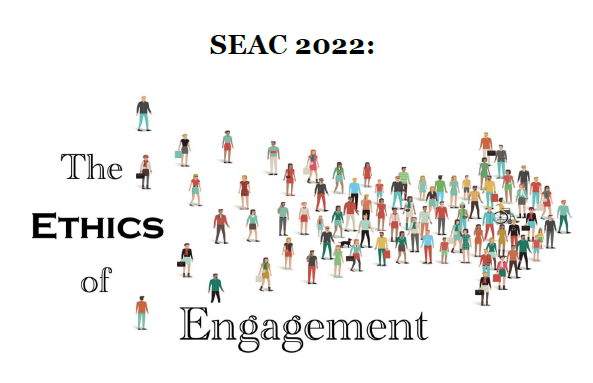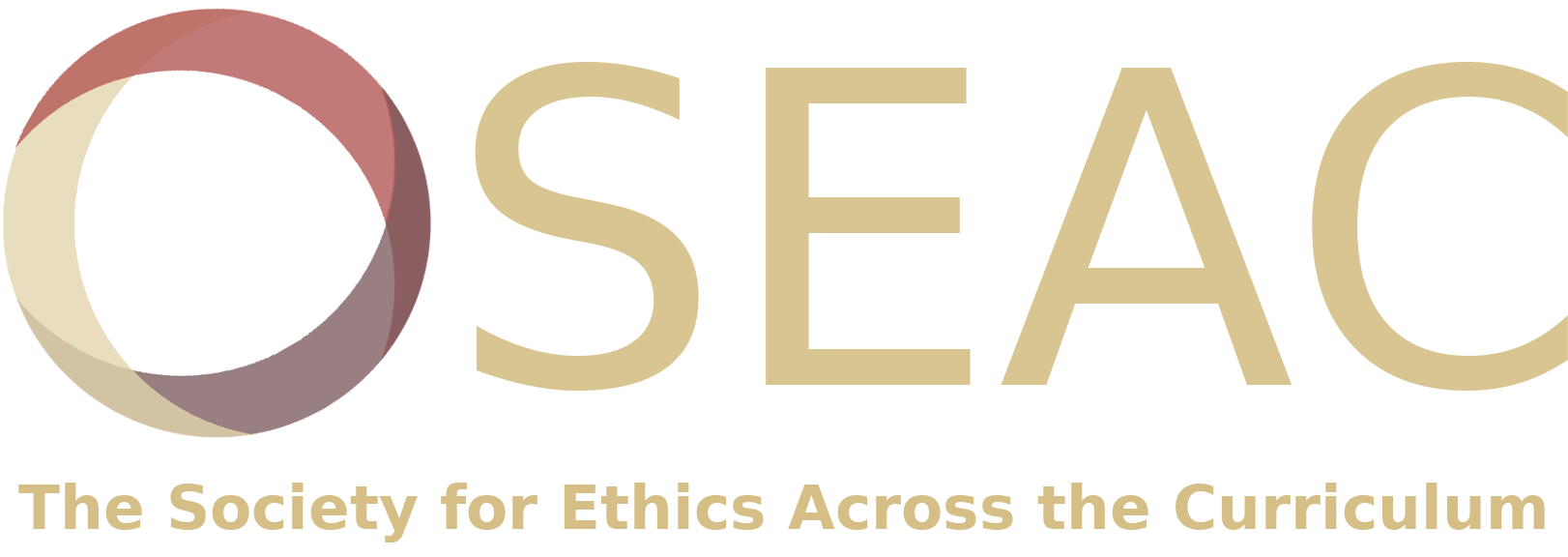
Concurrent Session 7C
Location
C: Room 207 (Bryant Hall, second floor)
Start Date
8-10-2022 10:25 AM
End Date
8-10-2022 11:35 AM
Description
- Adding Space to Your Class Discussions: Case Studies in Space Exploration / Kelly Smith, Clemson University
We explore 15 case studies written by a team of students examining a variety of ethical issues in space exploration. These sorts of issues have not received much scrutiny yet, largely because humanities scholars still think of them as the stuff of science fiction. But over just the last 25 years, our knowledge of the universe beyond Earth has exploded and new technologies are coming online that make bold new missions possible. Indeed, multiple nations are currently vying to secure historic firsts, often with disturbing implications (e.g., Israel has already accidentally contaminated the moon with terrestrial lifeforms and planned human missions to Mars pose significant risks to any indigenous life that might be there). And private companies wanting in on the action are beginning to offer potentially lucrative activities like space tourism. Whatever the merits, when five different companies are in competition to create and exploit this new market, it’s hard to deny that we have reached a true tipping point. Without more discussion of the complex ethical issues involved (and soon), we are in great danger of creating a “wild west in space” where pretty much anything goes. To avoid that, we simply must begin grappling with these challenges in a serious way. We submit that all instructors should consider injecting a dose of space into their class discussions to prepare for this future, to bring an interesting new perspective to classic problems, and to take advantage of the enormous public interest in all things space-related. - A One-Way Trip to Mars: Practicing Moral Imagination in the Ethics of Punishment / J.K. Miles, Quincy University
Aristotle understood that ethical engagement is cemented by practice, not just study. The Stoics suggested that one way we practice is by imagining ourselves in scenarios where we should respond ethically, so that when the time comes, we can do the right thing. If true, teaching moral imagination may be as important as teaching moral reasoning. In this paper, I reflect on teaching a course on the Ethics of Punishment to several sections of criminal justice majors. The students had trouble conceiving of criminal justice as anything different from the U.S. system, where the morality of punishment has been affected by race, class, and gender. When students compared the philosophy of punishment in Norway, their response mirrored the objections of American prison officials: “That just would never work here.” What was needed was a comfortable way to engage with the U.S. punishment system, examining common justifications for punishment. Throughout the course, I asked my students to imagine they were members of a “Penal Committee'' headed for a new Mars colony. Their job was to build an ethically justified penal philosophy from the ground up, far away from Earth and before touchdown. Three results were significant. 1) The fiction seemed to free up the students' moral imagination to concentrate on moral reasoning. 2) This daily thought experiment created a kind of “Original Position” where differing moral intuitions were tested. 3) Students seriously questioned their previous intuitions about punishment.
Session Chair: Steven Scales, Towson University
Relational Format
conference proceeding
Recommended Citation
Smith, Kelly; Miles, J. K.; and Scales, Steven, "Concurrent Session 7C" (2022). Society for Ethics Across the Curriculum Conference. 44.
https://egrove.olemiss.edu/seac/2022/schedule/44
COinS
Oct 8th, 10:25 AM
Oct 8th, 11:35 AM
Concurrent Session 7C
C: Room 207 (Bryant Hall, second floor)
- Adding Space to Your Class Discussions: Case Studies in Space Exploration / Kelly Smith, Clemson University
We explore 15 case studies written by a team of students examining a variety of ethical issues in space exploration. These sorts of issues have not received much scrutiny yet, largely because humanities scholars still think of them as the stuff of science fiction. But over just the last 25 years, our knowledge of the universe beyond Earth has exploded and new technologies are coming online that make bold new missions possible. Indeed, multiple nations are currently vying to secure historic firsts, often with disturbing implications (e.g., Israel has already accidentally contaminated the moon with terrestrial lifeforms and planned human missions to Mars pose significant risks to any indigenous life that might be there). And private companies wanting in on the action are beginning to offer potentially lucrative activities like space tourism. Whatever the merits, when five different companies are in competition to create and exploit this new market, it’s hard to deny that we have reached a true tipping point. Without more discussion of the complex ethical issues involved (and soon), we are in great danger of creating a “wild west in space” where pretty much anything goes. To avoid that, we simply must begin grappling with these challenges in a serious way. We submit that all instructors should consider injecting a dose of space into their class discussions to prepare for this future, to bring an interesting new perspective to classic problems, and to take advantage of the enormous public interest in all things space-related. - A One-Way Trip to Mars: Practicing Moral Imagination in the Ethics of Punishment / J.K. Miles, Quincy University
Aristotle understood that ethical engagement is cemented by practice, not just study. The Stoics suggested that one way we practice is by imagining ourselves in scenarios where we should respond ethically, so that when the time comes, we can do the right thing. If true, teaching moral imagination may be as important as teaching moral reasoning. In this paper, I reflect on teaching a course on the Ethics of Punishment to several sections of criminal justice majors. The students had trouble conceiving of criminal justice as anything different from the U.S. system, where the morality of punishment has been affected by race, class, and gender. When students compared the philosophy of punishment in Norway, their response mirrored the objections of American prison officials: “That just would never work here.” What was needed was a comfortable way to engage with the U.S. punishment system, examining common justifications for punishment. Throughout the course, I asked my students to imagine they were members of a “Penal Committee'' headed for a new Mars colony. Their job was to build an ethically justified penal philosophy from the ground up, far away from Earth and before touchdown. Three results were significant. 1) The fiction seemed to free up the students' moral imagination to concentrate on moral reasoning. 2) This daily thought experiment created a kind of “Original Position” where differing moral intuitions were tested. 3) Students seriously questioned their previous intuitions about punishment.
Session Chair: Steven Scales, Towson University


